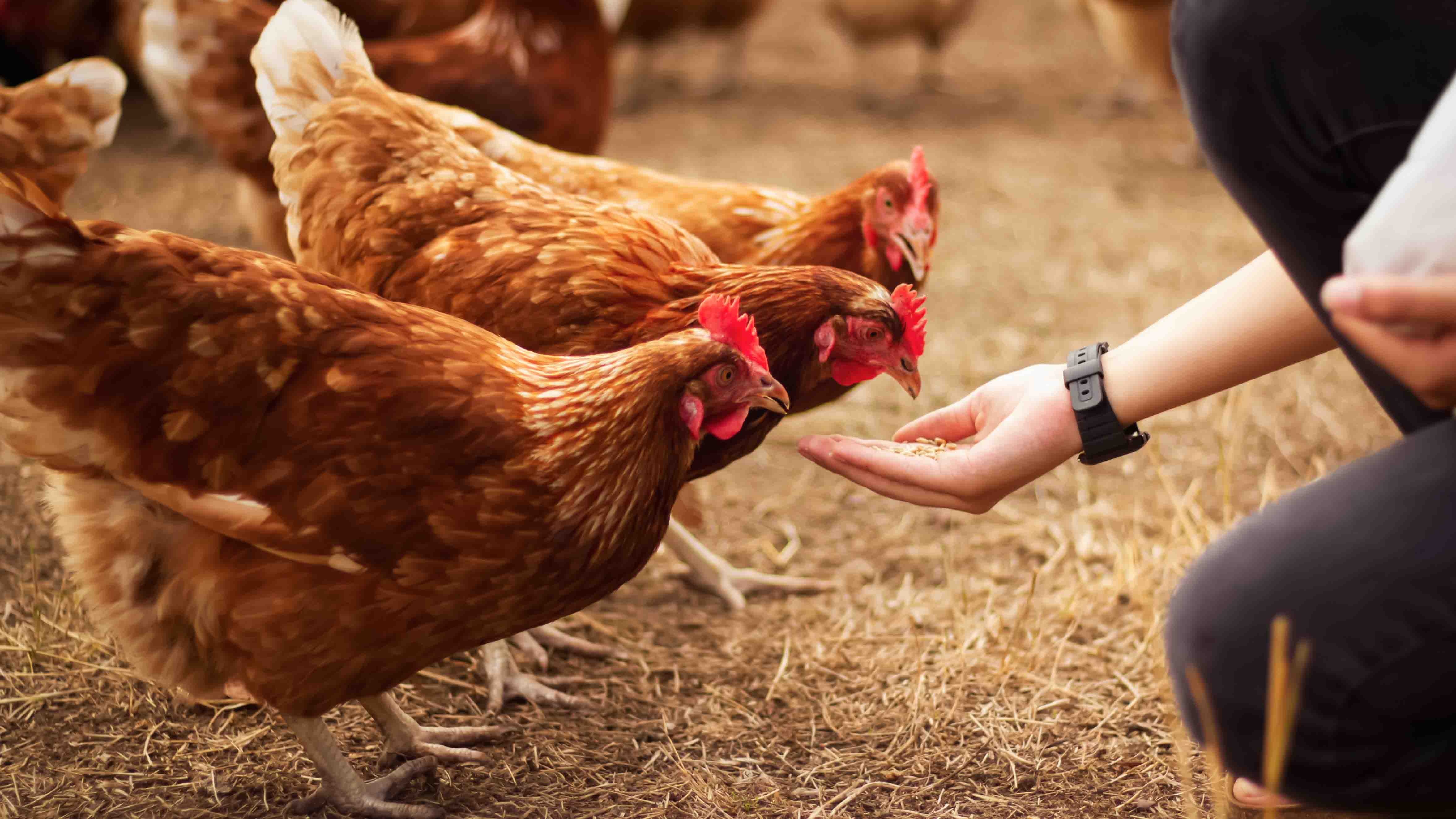
SDG 12: Responsible Consumption and Production 2025 Report
SDG 12 - Responsible Consumption and Production
Ensure sustainable consumption and production patterns
The University of Huddersfield actively promotes SDG 12 through ethical sourcing, waste reduction, and sustainable manufacturing initiatives. Our catering services follow rigorous sustainability standards, minimise single-use plastics, and encourage reusable alternatives. Through projects like the Future Advanced Metrology Hub and collaborative research on sustainable materials, we aim to support innovation in responsible production.
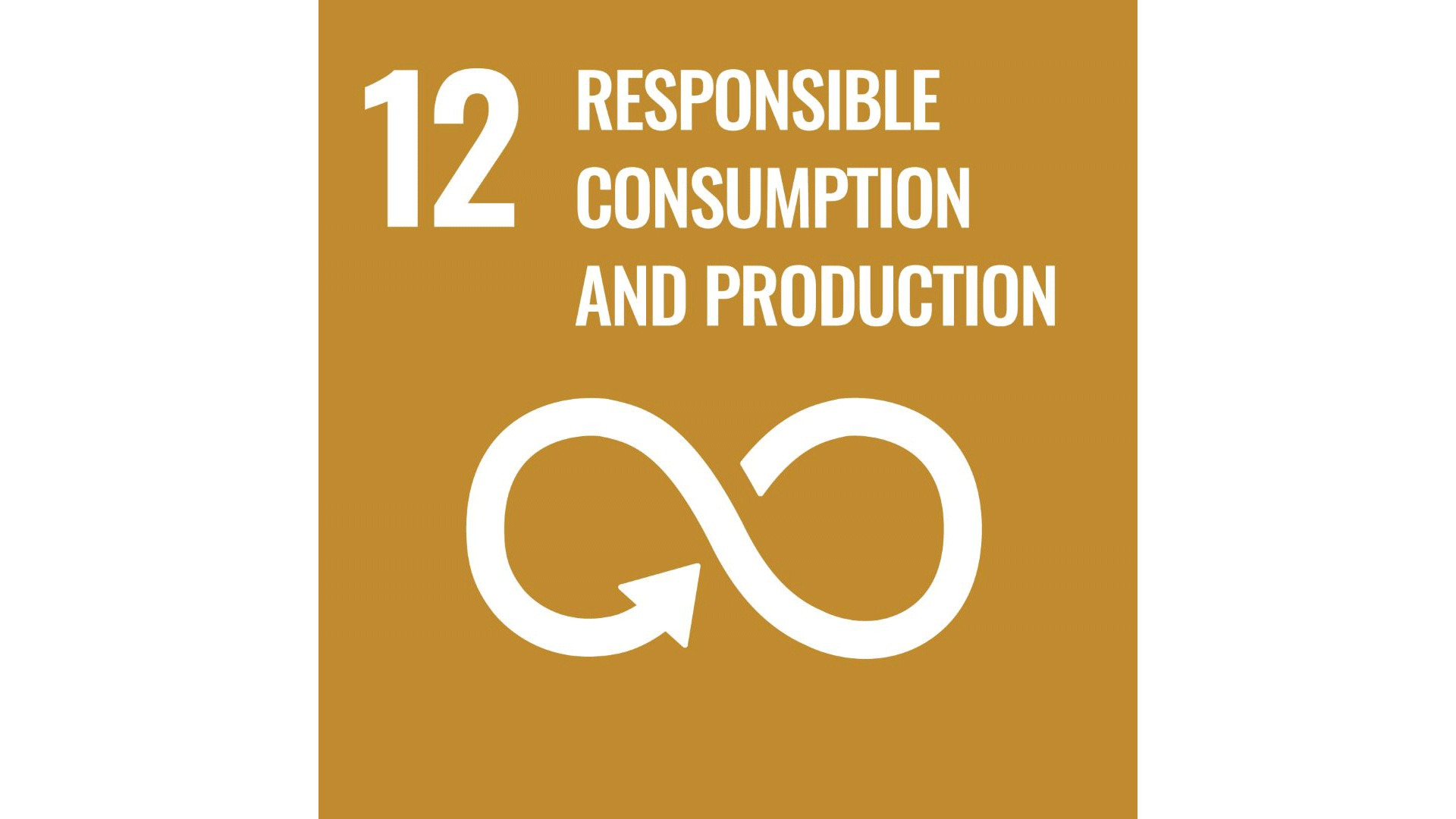
Learning for students
Sustainability Society
The University of Huddersfield’s Student Union runs a Sustainability Society, a student-led community dedicated to creating real lasting change on campus and beyond. Their mission is to ‘inspire action, raise awareness and empower students to be part of the global movement towards a more sustainable future’. The group works in partnership with the University’s Sustainability Team and with a local council-driven organisation championing sustainability across the community. They have been involved in events such as tree-planting, clean-up days and waste reduction initiatives and have also hosted engaging guest lectures, workshops and panel discussions with leading voices in sustainability.

Public and business engagement
Energy Integration Lab
The work of the University’s Energy Integration Lab brings together experts from science, engineering, computing, and business to build a fully connected energy infrastructure that supports the University's green goals. The lab acts as a "living project," where researchers and industry partners can work together, using real data and cutting-edge knowledge to create better, more efficient energy systems. One key part of the project focuses on turning waste from the University into usable energy, for example, converting waste into gas, and then into electricity using small turbines. This work not only helps lower the University's energy costs and reduce its environmental impact, but also supports important research, collaboration with partners, and real-world learning opportunities for students. It stands as a visible example of how the University is putting research into action on campus and sharing those benefits with the wider community.
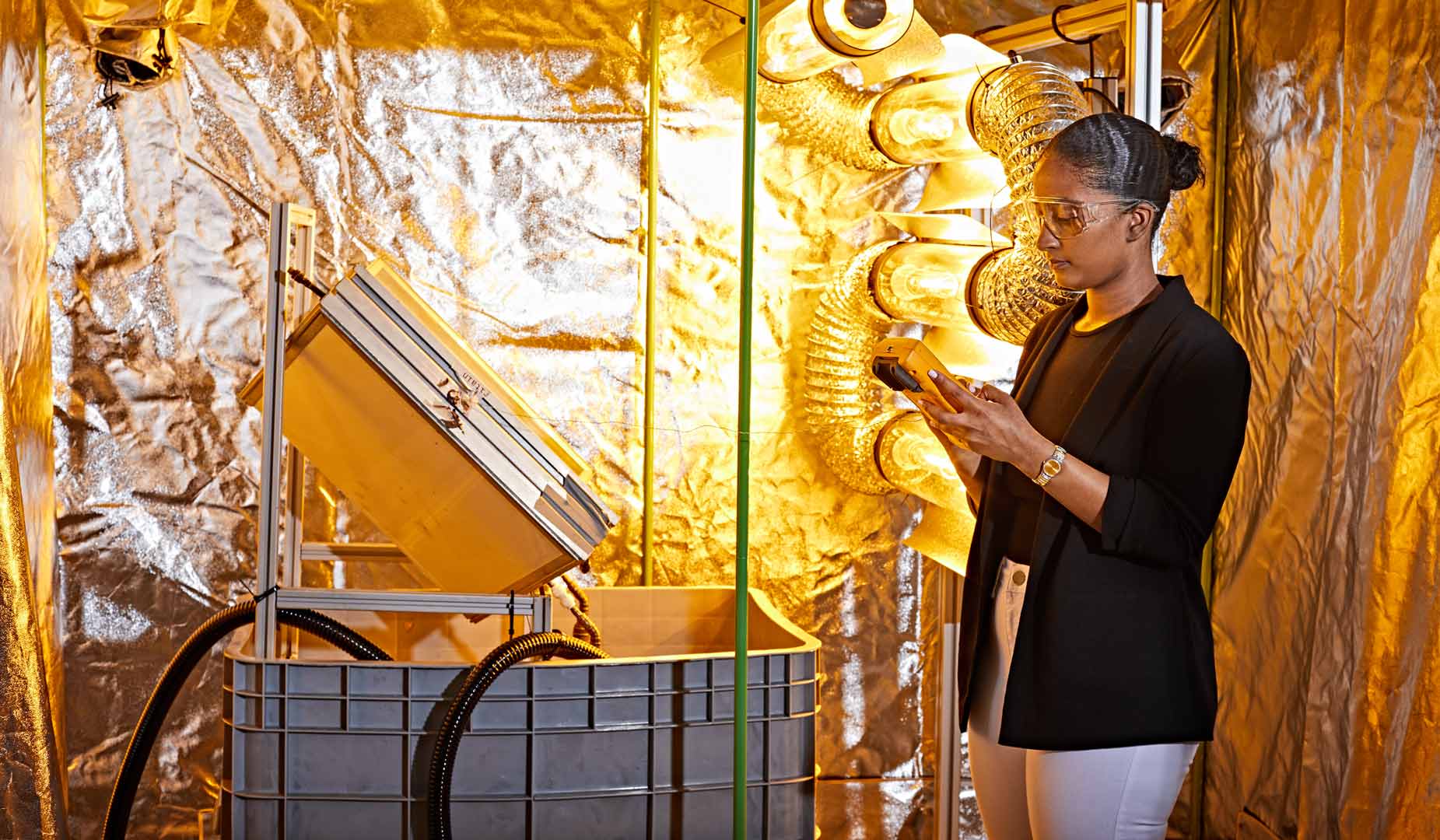
Knowledge Transfer Partnership - Puffin Packaging
The University has teamed up with Puffin Packaging and the national wool organisation to develop a Knowledge Transfer Partnership (KTP), which has resulted in the launch of a new sustainable packaging liner. The packaging is a cost-effective sustainable alternative to polystyrene and is the only certified 100% British Wool cold chain insulated packaging product in the world. The decision to use British wool was driven by a desire to find sustainable uses for the material while supporting local farmers and preserving the tradition of British agriculture.
Operations
The University of Huddersfield spends c. £50m through Procurement Services each year, and makes a commitment to being exemplars of best practice when it comes to Sustainability and Corporate Social Responsibility.
Sustainable Ethical and Local Sourcing
The University’s Catering department works in close partnership with the Sustainability Team to promote environmentally responsible food choices across campus. We ethically source food and support a range of initiatives, including the Fairtrade University Award and the Staff Allotments. Our purchasing practices align with the standards outlined in our Sustainable Food Policy, Fairtrade Policy and Fairtrade Action Plan. We serve food in accordance with recognised certifications and assurances: fresh meat is Red Tractor assured, fish is MSC certified, eggs are free-range, and coffee is ethically sourced and certified. We also follow guidelines from the Soil Association and the Roundtable on Sustainable Palm Oil. Our suppliers demonstrate strong environmental commitments, including sustainable sourcing, reducing single-use plastics, and expanding our plant-based drink options.
All of our fresh produce is sourced from within a 40-mile radius of the University campus, and we are now able to utilise produce such as fruit, veg and herbs that have been grown on our campus in dishes served in our busy International Kitchen. All of our frozen and ambient products (around 60% of catering spend) are sourced through the local (Huddersfield-based) supplier Total Foods. Whilst this does not guarantee local supply, streamlining this range of products reduces the number of deliveries required to campus and therefore the associated CO2 emissions.
We continue to be recognised by the People for the Ethical Treatment of Animals (PETA) Foundation as one of the most vegan-friendly universities in the UK. Vegan small plate options are available to staff and students for £2.60, providing freshly prepared, and nutritionally balanced hot meal options at an affordable price. The Catering team are continuing to develop vegan options across campus, with a diverse range of recipes and products now featuring on the menu. We have seen significant growth in customers choosing vegan meals with these occasionally outselling meat options as a result.
Minimisation of plastic and disposable items
Our Sovereign Design House café offers a food and drink service where the use of disposables is reduced to a minimum. In-house food and drink are served only with crockery, while those who wish to take-out are strongly encouraged to bring their own reusable mugs or containers. We have also successfully replaced all plastic disposable take away, salad and hospitality boxes with biodegradable alternatives.
We have increased our crockery provision across campus and have introduced a 15p charge for each disposable cup. This initiative was launched in September 2022 and has had a dramatic positive impact. Before the 15p charge was implemented, only 2% of hot drinks were sold in reusable cups; since implementation of the charge and an increased provision of crockery, 32% of hot drinks are now sold in reusable cups.
All takeaway containers purchased by the catering department in the 2023/24 academic year were compostable or recyclable, and we meet regularly with suppliers to review the sustainability of our disposable products. We replaced plastic cutlery with a birchwood alternative in April 2023 ahead of the single-use plastics ban implemented in October 2023, and in the 2023/24 academic year, 101,000 birchwood cutlery items replaced plastic ones. At three of our outlets, we promote the use of reusable metal cutlery to our dine-in customers.
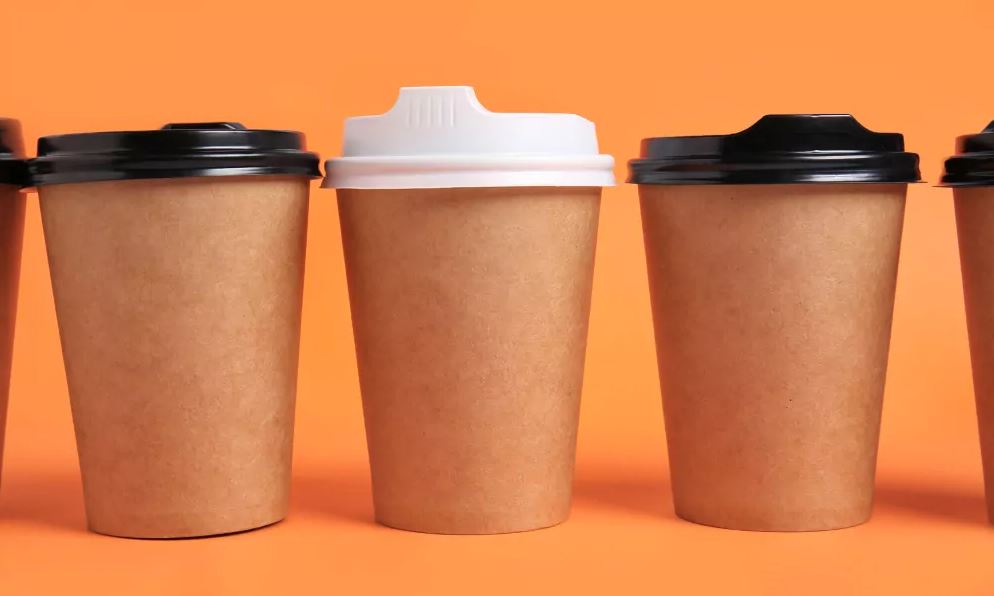
Waste
The successful implementation of waste recycling stations across all University food outlets continues to promote positive behaviour among students and staff, encouraging the separation of catering waste and contributing to an increased volume of recyclable materials. This initiative has helped the University achieve a recycling rate of 49%. Each recycling station features five clearly labelled, segregated waste streams, making it easier for users to dispose of waste correctly. The stations have also served as an educational tool, particularly for international students, who have used them to familiarise themselves with local recycling practices.
We partner with ReFood to divert our food waste to a South Yorkshire anaerobic digestion facility, and on average divert 1,690kg of food waste from incineration per month. This Food Waste has the potential to generate 2647 kwh of electricity and 3 tonnes of fertilizer. Our coffee outlets segregate all coffee ground waste, allowing our grounds maintenance team to use it as a rich fertiliser for our biodiverse campus. Last year, 12.53 tonnes of coffee-ground waste was reused as fertiliser.
Our research
Metrology Hub
The University is leading on a project to help advance sustainable manufacturing with the development of a new Future Advanced Metrology Hub. Metrology underpins the entire scope of manufacturing and product verification and the constant drive for accuracy, speed, cost, reduced waste, reduced energy usage and enhanced product quality has seen measurement technologies become a crucial tool in enhancing manufacturing sustainability.
Future Fibres Network+
The University is part of the Future Fibres Network+, a collaboration that seeks to understand and drive the fashion and textile industry towards sustainable and responsible practices. The vision of the network is to bring environmental science into the heart of the UK fashion, apparel and textiles sectors through the work of transdisciplinary experts and methodologies.
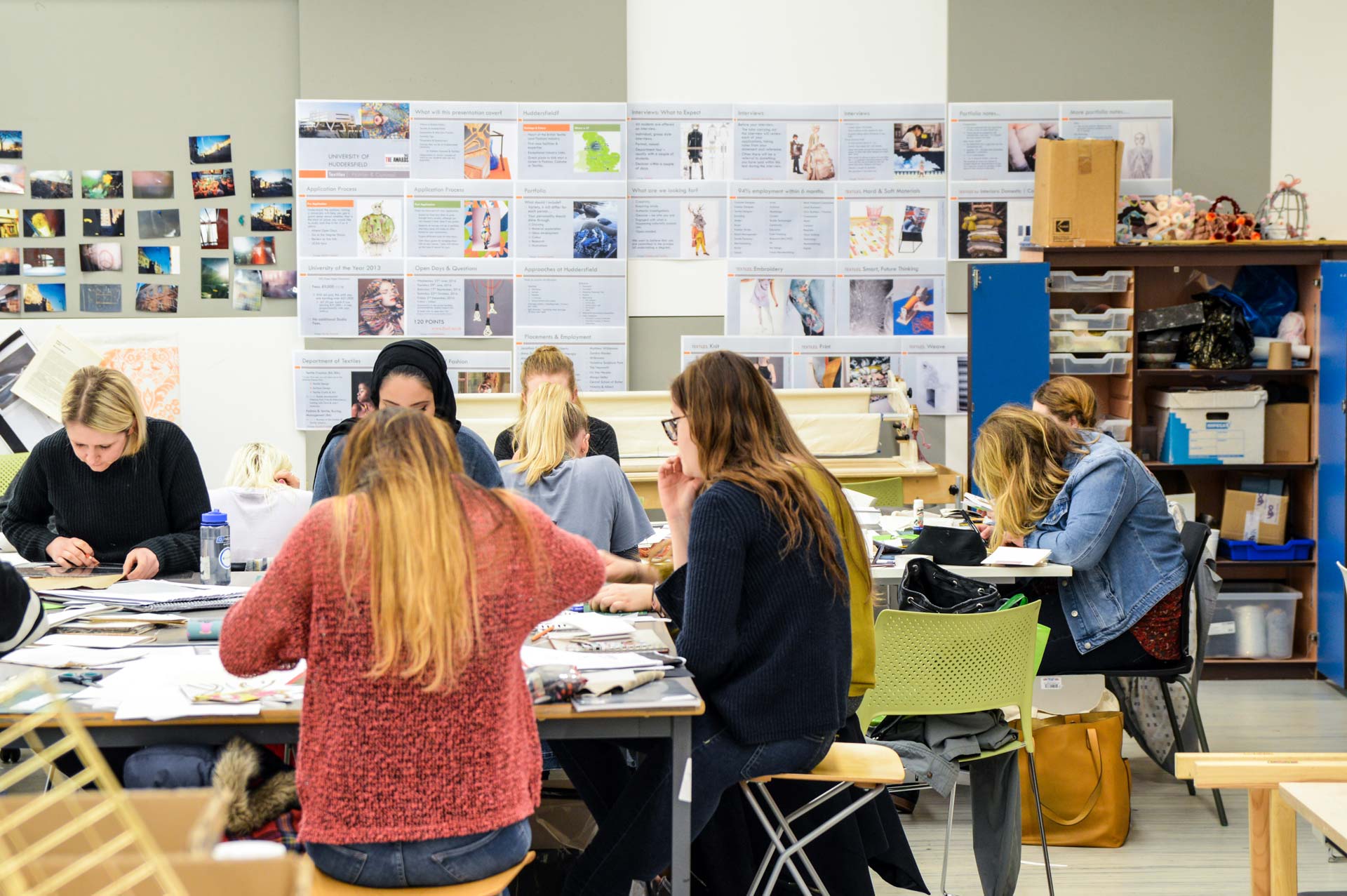
Find further information
Huddersfood
Discover sustainably sourced food and drink options in our University catering outlets as well as sustainability practices within the team to reduce food waste on campus.
Waste and reycling
Our overriding ambition is to reduce the amount of waste we produce on campus and to ensure that any waste we do generate is dealt with in a sustainable and responsible manner.
Sustainability initiatives
As a university, we work to embed sustainability into every aspect of campus life, combining innovation with responsibility to contribute to a sustainable future.
Sustainable Development Goals
Click to explore our other sustainable development goal pages and get to know how we're working towards these at the University of Huddersfield.
